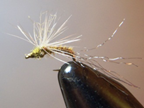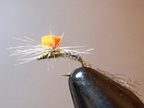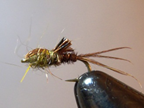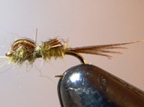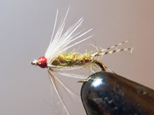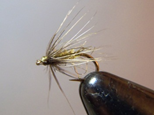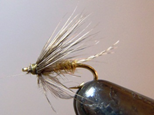BWO HAPPY HOURS (part 3)
PART 3: MORE ATTEMPTS
& MORE PARANOIA
Tying at Eva' Hut along DePuy's Spring Creek…..
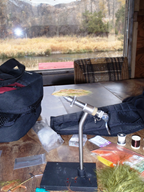 Duration and intensity of Fall BWO hatch and trout rises vary day by day. Both are affected by daily weather. It's hard to predict what would happen on that day or set up routines during fall fishing around Livingston. One day hatches and rises would last over two hours (longest one can expect), then next day, they could be as short as 30 minutes, if not none. Next good hatch and full two-hour rising actions I encountered were in the afternoon of October 31st. I added more patterns, learning from Tom Travis. Then I conducted following methods with better understanding.
Duration and intensity of Fall BWO hatch and trout rises vary day by day. Both are affected by daily weather. It's hard to predict what would happen on that day or set up routines during fall fishing around Livingston. One day hatches and rises would last over two hours (longest one can expect), then next day, they could be as short as 30 minutes, if not none. Next good hatch and full two-hour rising actions I encountered were in the afternoon of October 31st. I added more patterns, learning from Tom Travis. Then I conducted following methods with better understanding.
DRY-DROPPER REVIEW:
So I tied up following patterns. When I didn't have time in my house or when things were slow at the creek, I tied some at one of resting huts of DePuy's, bringing my travel tying kit.
|
|
|
|
Paraloop Emerger/Cripple |
Foam Post Parachute – BWO |
Sawyer PT with Dubbing |
Turkey Biot Nymph |
Here's how to use.
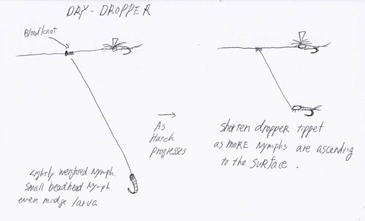
SWING SOFT-HACKLES:
I often apply this method when dead-drifting dry-flies is not producing or simply hard to see during BWO and midge hatches (of course soft-hackles can be fished dry and dead-drifted but that has to be discussed in different articles).
|
|
|
Nick's Soft Hackle |
Tom's Simple Soft Hackle – BWO |
Flymph – Tom's Version |
I rig up these soft-hackles as depicted below and fish in classic methods: cast down & cross, mend upstream to slow down, then let current take my line and flies. Trout can't resist, follow soft-hackles, and set hooks automatically by themselves at typically corners of their mouths.
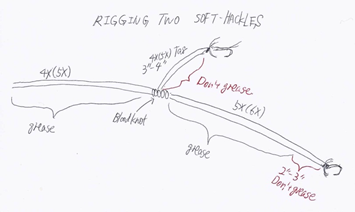
Some of you would expect pictures of fish and me doing "grip-&-grin" here………WRONG!! This afternoon was more shocking than the afternoon of 27th. At "Bend", three trout locked in each position and kept rising again without breaking the surface film. Each of them barely moved one-foot to left, right, up, or down from its original position. So there must have been something good and big amount of food there. I again considered midge (pupae, emergers, or adults) might be present. However my seine kept collecting only BWO. Two techniques mixed with various flies (all good ones!!) didn't work at all. My flies were totally ignored as if I were casting from Mars. Trout kept feeding for two hours and I was struggling for two hours. I had to admit my "Waterloo".
Another concern I had: BWO hatch and trout rises seemed weaker than this time of year before (2011). It could call for the year any time soon. Time was limited………
To be continued to PART 4.
Satoshi Yamamoto, https://leftyangler.blogspot.com, brought his passion for fly-fishing & fly-tying from Japan to Montana and became the first ever Japanese guide in Livingston, MT. He guides and fishes big rivers like Madison & Yellowstone, spring creeks in Paradise Valley, and various waters in Yellowstone Park. Hence, with his Regal Vise at the bench, his fly tying interests vary from tiny midges to 5-inch streamers and anything in between. Once his ideas are combined he goes out for experiments at those near-by waters. Satoshi submits his innovative patterns to Montana Fly Company (www.montanafly.com).
His own innovative original patterns can be purchased from his fly-shop, https://leftytyer.blogspot.com.

